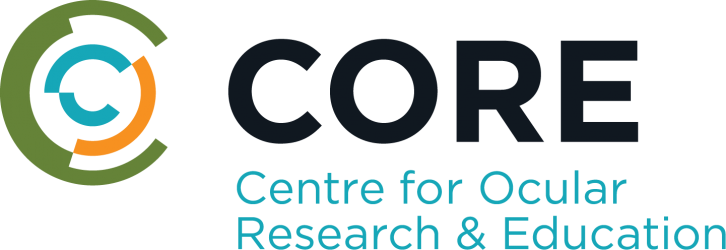“Rapid Fire” CE Session Anticipated to Draw Significant Interest; Researchers also Presenting Six Posters in San Antonio
SAN ANTONIO, November 7, 2018—With silicone hydrogel contact lenses moving past the two-decade mark, is there still ground to cover for this game-changing material? The Centre for Ocular Research & Education (CORE), which has played key roles in multiple pivotal contact lens advancements, believes the future will be defined by new applications, designs, manufacturing platforms, and wearer benefits—and is sharing those predictions at the 2018 American Academy of Optometry Annual Meeting.
Its continuing education session, Celebrating 20 Years of Silicone Hydrogels: the Past, Present and Future, is expected to attract substantial interest across the profession. Using the analogy of a child growing from infancy to its college years, four CORE scientists will cover distinct time periods in the evolution of silicone hydrogel lenses, and share how practitioners’ understanding of how to optimize their use has changed over time. The rapid fire session is capped by an informed look to the future, addressing topics that include:
- Improvements for additional comfort gains,
- Reductions in corneal inflammatory events and microbial keratitis,
- Capabilities to cost-effectively manufacture select designs at scale,
- Myopia control designs and the advent of smart contact lenses,
- Challenges of drug eluting contact lenses,
- Biosensing technologies, and their ocular and systemic applications,
- And the exploration of unique optical designs.
Lyndon Jones, PhD, DSc, FCOptom, FAAO, FBCLA, director of CORE, is making these forecasts on Thursday, November 8, from 3 – 4 pm CST in Room 217 A-B. He will be joined by colleagues Jill Woods, BSc (Hons), MCOptom, FAAO, Karen Walsh, BSc (Hons), MCOptom, PGDip, and Doerte Luensmann, PhD, Dipl. Ing. (AO), FAAO.
“By understanding how silicone hydrogel materials have changed over time and what the future holds, eye care professionals will be able to deliver more optimal experiences for their practices and patients,” said Dr. Jones. “This includes complex interactions with the ocular surface and tear film, leading to better recommendations for material, design and modality.”
In addition to its CE session, CORE is presenting six posters at Academy ‘18:
- Novel In-Vitro Method to Study Bacterial Interaction with Contact Lenses on Friday, November 9 from 10 a.m. – 12 p.m. (Board #140).
- Validation of Multifocal Soft Lens Power Calculator in OptiExpert: Application for clariti 1-Day Multifocal Lens Fitting on Friday, November 9 from 10 a.m. – 12 p.m. (Board #158).
- Method Optimization to Quantify Four Neuropeptides in the Human Tear Film on Friday, November 9 from 1 – 3 p.m. (Board #61).
- Physical Dimension and Optical Assessment of Currently Marketed Silicone Hydrogel Contact Lenses after Exposure to Cosmetics on Friday, November 9 from 1 – 3 p.m. (Board #157).
- Professional Collaboration for Patient-Centered Eye Care on Thursday, November 8 and Friday, November 9 (Board #20)
- Centre for Ocular Research & Education: Mission and Capabilities Overview on Thursday, November 8 and Friday, November 9 (Board #21)
# # #
About the Centre for Ocular Research & Education (CORE)
The Centre for Ocular Research & Education (CORE) – formerly known as the Centre for Contact Lens Research – was established in 1988 at the University of Waterloo’s School of Optometry & Vision Science. Over the next three decades, the organization evolved from a three-person operation into a thriving hub of basic and applied research, collaborating with sponsors, agencies and academia on advanced biosciences, clinical research and education. Its uncompromising independence and results of the highest quality have been at the heart of many of the most prominent advances in eye health. Today, its approximately 50-person team serves a range of ophthalmic sectors, including medical devices, ocular pharmaceuticals, digital technology and others, with a focus on the anterior segment. For more information, please visit core.uwaterloo.ca.
MEDIA CONTACTS:
Aimee J. Lewis or Mike McDougall, APR, Fellow PRSA, McDougall Communications for CORE
aimee@mcdougallpr.com +1.585.414.9838 | mike@mcdougallpr.com +1.585.545.1815





